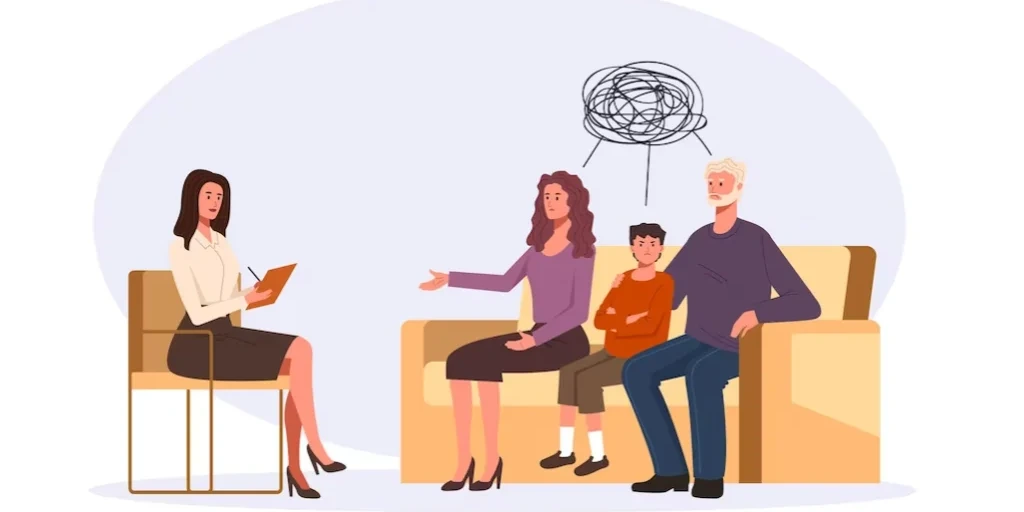24/7 Helpline:
(866) 899-221924/7 Helpline:
(866) 899-2219
Learn more about Aftercare Support centers in Izard County

Other Insurance Options

Evernorth

WellCare Health Plans
Beacon

Access to Recovery (ATR) Voucher

Multiplan

Regence

Group Health Incorporated

Molina Healthcare

United Health Care

CareSource

Highmark

CareFirst

Oxford

MHNNet Behavioral Health

Meritain

Sutter

Health Net

ComPsych

AllWell

UnitedHealth Group

Circles of Care – Sheridan Oaks and Twin Rivers
Circles of Care – Sheridan Oaks and Twin Rivers, in Melbourne, Florida, provides medically supervise...

Intensive Residential Treatment Center
Intensive Residential Treatment Center is a private rehab located in Melbourne, Florida. Intensive R...

Circles of Care – South Area
Circles of Care - South Area provides outpatient programs and comprehensive behavioral health servic...

Circles of Care – Outreach Services
Circles of Care - Outreach Services provides in-home and on-site counseling, and case management ser...

Circles of Care – Community Support Services
Circles of Care - Community Support Services is a structured therapeutic program which a highly supe...

St John’s Recovery Place
Here at St. John’s Recovery Place, our ultimate focus is on helping your heal and become the best ve...

Alcohol and Drug Dependency Services – ADDS
Alcohol and Drug Dependency Services (ADDS) provides chemical dependency treatment services, prevent...

Cumberland River Behavioral Health
Cumberland River Behavioral Health is an outpatient facility for individuals with a Mental Health di...

Community Mental Health Services
Community Mental Health Services is a private rehab located in Mount Pleasant, Michigan. Community M...

Michigan Therapeutic Consultants
Michigan Therapeutic Consultants is a private rehab located in Mount Pleasant, Michigan. Michigan Th...

Saginaw Chippewa Indian Tribe
Located in the heart of the Isabella Reservation, Saginaw Chippewa Indian Tribe Behavioral Health Pr...

ASCC – Therapy Solutions
ASCC - Therapy Solutions is an outpatient rehab located in Mount Pleasant, MI. ASCC - Therapy Soluti...

Lakes Regional Mental Health
Lakes Regional Mental Health - W. 16th Street offers outpatient and intensive outpatient treatment f...


























Preferred Family Healthcare
Preferred Family Healthcare, located in Melbourne, Arkansas, offers alcohol and drug rehab services ...

Riverside Counseling Services
Riverside Counseling Services, located in Melbourne, Florida, offers behavioral health care and ment...

Florida Counseling Centers Family Services
Florida Counseling Centers Family Services is a private rehab located in Melbourne, Florida. Florida...

Circle Club
Circle Club is a non-profit rehab located in Melbourne, Florida. Circle Club specializes in the trea...

Circles of Care – Outpatient
Circles of Care – Outpatient is a private rehab located in Melbourne, Florida. Circles of Care – Out...

Oxford House Harbor City
Oxford House Harbor City is a non-profit house located in Montgomery, AL. Oxford House Harbor City h...

JourneyPure Melbourne
JourneyPure Melbourne is a private rehab located in Melbourne, Florida. JourneyPure Melbourne specia...

WhiteSands Treatment – Melbourne
WhiteSands Treatment – Melbourne is a private rehab located in Melbourne, Florida. WhiteSands Treatm...

Mental Health Institute – Residential Treatment
Mental Health Institute – Residential Treatment is a public rehab located in Mount Pleasant, Iowa. M...

AA – Alcoholics Anonymous – 235th Street
Alcoholics Anonymous (AA) - 235th Street provides outpatient services for individuals with alcohol a...

Optimae Behavioral Health – Mount Pleasant
Optimae Behavioral Health – Mount Pleasant is a private rehab located in Mount Pleasant, Iowa. Optim...

Pathways Community Health – Red River Treatment Center
Pathways Community Health - Red River Treatment Center provides medically supported detox and reside...

Caring Choices of Pineville
Caring Choices Pineville is a public rehab located in Pineville, Louisiana. Caring Choices Pineville...

Pathways Community Health – Gateway Adolescent Treatment Center
Pathways Community Health - Gateway Adolescent Treatment Center is located in Rapides Parish and pro...

Pathways Community Health – Phase II House
Pathways Community Health - Phase II/TANF/Bridge House is located in Rapides Parish and provides tem...

Recovery Unlimited Counseling Services
Recovery Unlimited Counseling Services is a private rehab located in Mount Pleasant, MI. Recovery Un...

Ten16 Recovery Network
Ten16 Recovery Network has a proud history of providing services to people impacted by substance use...

Mount Pleasant Alano Club
Mount Pleasant Alano Club is a drug and alcohol rehab and community resource center in Mount Pleasan...

Gateway Rehab – Westmoreland
Located in Mount Pleasant, California, Gateway Rehab- Westmoreland provides alcohol and drug rehab s...

MATR Behavioral Health
MATR Behavioral Health, in Mount Pleasant, Utah, is a 12 step-focused drug and alcohol rehab for adu...






































































































































